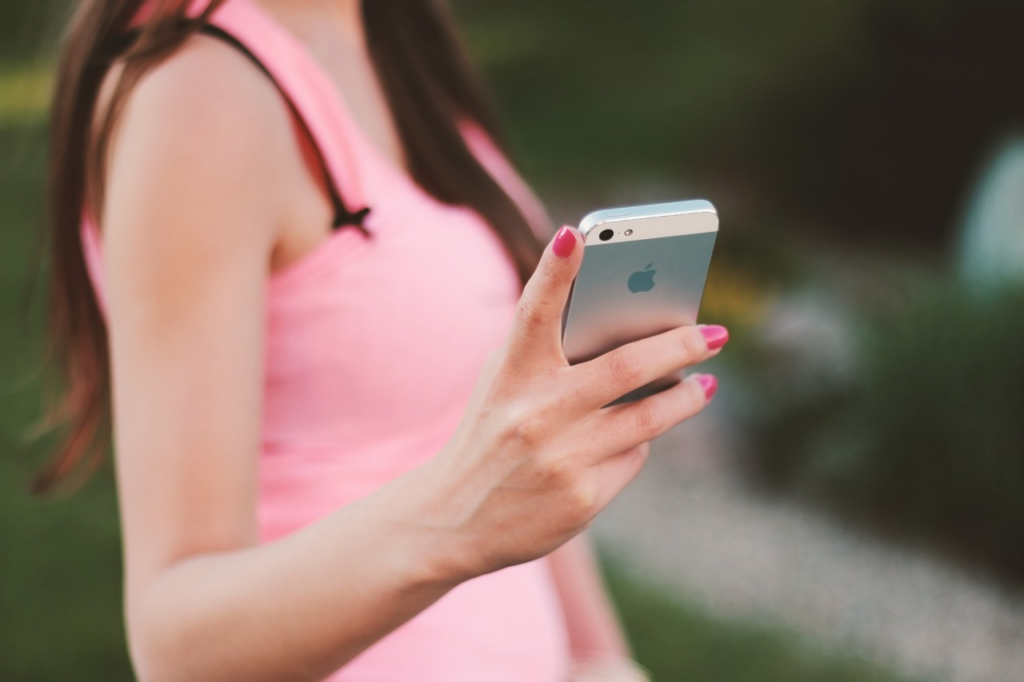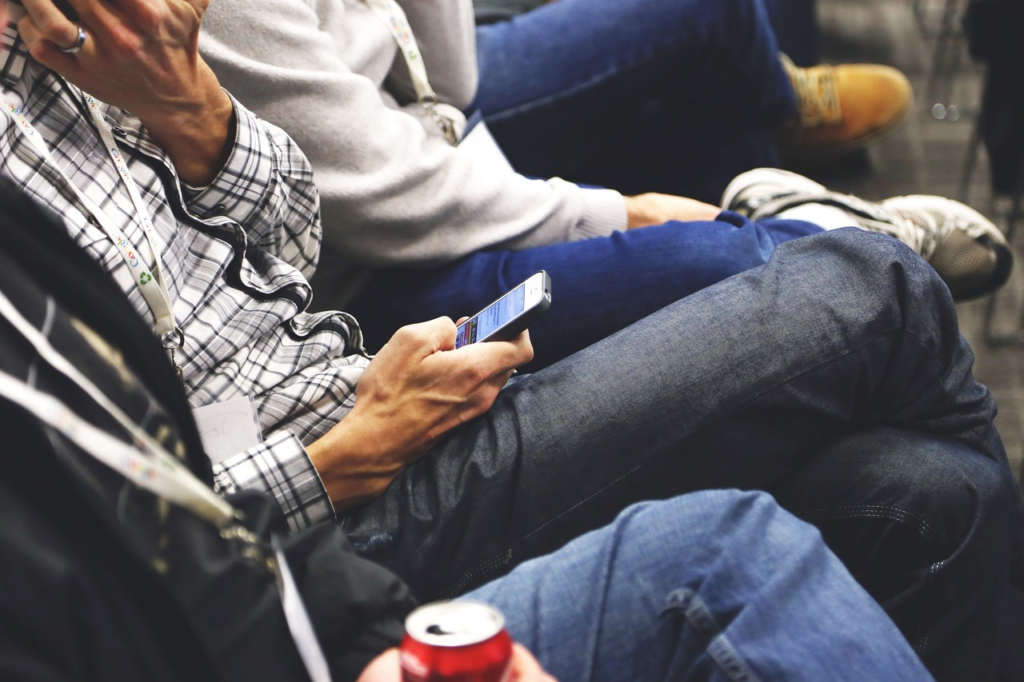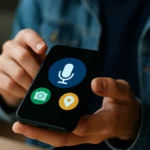In the modern world, technology has become an essential part of our lives. From communication to entertainment, digital technology, especially smartphones, play a significant role in our daily routines. However, with the increased use of these devices comes concern about the negative effects they can have on our physical, mental and emotional health.
The impact of excessive cell phone use on physical health
In today's world, where smartphones have become an almost inseparable extension of our hands, it is crucial to understand the profound effects that excessive use of these devices can have on our physical health. While the convenience and connectivity provided by cell phones is undeniable, it is important to recognize that their prolonged and inappropriate use can lead to a number of significant physical problems.
1. Posture and Muscle Pain
Posture and muscle pain are growing concerns associated with the excessive use of cell phones. When we spend long periods bent over our devices, as is common when using smartphones, tablets or laptops, this can result in a series of physical problems, mainly related to poor posture.
The way we hold and tilt our heads to view the cell phone screen can create significant strain on the cervical spine and neck muscles. This habit, known as "text neck" or "forward head syndrome", involves tilting the head forward, increasing the angle between the neck and spine. This puts additional pressure on the cervical vertebrae and neck muscles, which can result in pain and discomfort.
In addition, poor posture when using a cell phone can affect the spine as a whole. Excessive curvature of the upper back, known as "thoracic kyphosis", can develop due to constant leaning forward. This can lead to back pain, muscle stiffness and even the development of a permanently rounded posture.

Another important aspect is the impact on the joints of the upper limbs. Holding a cell phone for long periods of time can put strain on the muscles in the arms, shoulders and hands. This can result in pain in the wrists, elbows and shoulders, as well as conditions such as carpal tunnel syndrome.
2. Eye problems
Eye problems are a significant concern associated with excessive use of cell phones and other electronic devices. Prolonged exposure to smartphone screens can cause a range of uncomfortable symptoms and even long-term damage to eye health.
One of the most common eye problems associated with cell phone use is digital eye fatigue, also known as computer vision syndrome. This occurs due to excessive eye strain when focusing closely on a screen for long periods of time. Symptoms include dry, irritated or red eyes, blurred vision, sensitivity to light and headaches.
In addition, prolonged exposure to the blue light emitted by smartphone screens can have harmful effects on eye health. Blue light has a higher frequency than other colors in the visible light spectrum and can penetrate deeper into the eye, reaching the retina. Studies suggest that excessive exposure to blue light can increase the risk of macular degeneration, a condition that can lead to loss of central vision.
3. Sleep disorders
Sleep disorders are a significant concern associated with the excessive use of cell phones, especially when these devices are used before bedtime. Exposure to the light emitted by smartphone screens can interfere with natural sleep cycles and impair the quality of rest.
One of the main factors contributing to sleep disorders is exposure to blue light. Blue light has a suppressive effect on the production of melatonin, a hormone that regulates the sleep-wake cycle. When we are exposed to blue light before bed, especially in significant quantities, such as when using a cell phone in bed, melatonin production is reduced, making it more difficult to fall asleep and interfering with sleep quality.
In addition, using smartphones before bed can increase mental stimulation, making it more difficult to relax and switch off your thoughts before going to sleep. The content of cell phone screens, such as text messages, emails, social networks or games, can be emotionally engaging or stimulating, which can make it difficult to relax and induce sleep.
The habit of checking your cell phone at night can also disrupt natural sleep cycles. Notifications of messages, emails or social media updates can wake a person up during the night, interrupting restful sleep and leading to fragmented sleep.
The impact of excessive cell phone use on mental and emotional health
In the ever-expanding digital universe in which we live, smartphones have become an integral part of our lives, offering a multitude of possibilities for connection and entertainment. However, as we indulge more and more in the use of these devices, there is growing concern about the effects their overuse can have on our mental and emotional health.
1. Technological dependence
Technological dependency, also known as technology addiction or nomophobia (fear of being without one's cell phone), is a growing concern associated with the excessive use of cell phones and other electronic devices. This phenomenon describes a pattern of behavior in which individuals feel a compulsive and irresistible need to constantly use their devices, even when this interferes with their personal, professional and social lives.
There are several reasons why people can develop a technological dependency. One of the main factors is the instant gratification that electronic devices provide. Notifications of messages, emails, likes on social networks and other online interactions release dopamine in the brain, providing a sense of pleasure and reward. This can lead people to continually seek out these experiences, creating a vicious cycle of compulsive use.
In addition, smartphones offer quick and easy access to a plethora of information, entertainment and communication, which can make them irresistible to many users. The constant feeling of being connected and up-to-date with what's happening in the online world can lead people to spend hours browsing apps and websites, even when they should be doing other activities.
2. Anxiety and stress
Anxiety and stress are significant problems associated with the excessive use of cell phones and other technological devices. Constant connectivity and the pressure to always be available and up-to-date can contribute to increased levels of stress and anxiety among users.
One of the main factors contributing to anxiety and stress related to cell phone use is the overload of information and digital stimuli. Constant notifications of messages, emails, social media updates and other apps can create a feeling of always being "on", increasing the sense of urgency and the need to respond immediately. This can lead to a feeling of mental and emotional overload, contributing to anxiety and stress.
In addition, social comparison can also play an important role in increasing anxiety related to cell phone use. Social networks allow people to share their lives, highlighting positive moments and achievements. However, this often idealized representation of others' lives can lead users to compare themselves negatively and feel inadequate in relation to others. This can contribute to feelings of envy, low self-esteem and social anxiety.
Another factor that can contribute to anxiety and stress related to cell phone use is technological dependence. The fear of missing an important notification or being disconnected can lead users to constantly check their devices, even in inappropriate situations, such as during work meetings, at social events or even when driving. This behavior can increase feelings of anxiety and a sense of lack of control over cell phone use.
3. Reduced ability to concentrate
Reduced ability to concentrate is a significant problem associated with excessive use of cell phones and other technological devices. The constant interruption and distraction caused by notifications, messages and updates can make it difficult to concentrate on important tasks and reduce the effectiveness of work or study.
One of the main factors contributing to a reduced ability to concentrate is the multitasking nature of mobile devices. Smartphones allow users to carry out several activities at the same time, such as sending messages, checking emails, browsing the internet and using apps, all on a single screen. However, studies show that the human brain is not efficient at performing several tasks simultaneously and that switching between different activities can lead to a reduction in the quality of performance and the ability to concentrate.
In addition, the constant availability of information on the internet can lead to a phenomenon known as "constant search syndrome". This occurs when users feel compelled to repeatedly check their devices for new updates or information, even when there is no real need to do so. This behavior can create a pattern of constant distraction and make it difficult to focus on a single task for an extended period of time.
Strategies to reduce the negative impact of excessive cell phone use
As smartphones become increasingly integrated into our daily lives, it is essential to recognize the importance of managing our use of these devices to ensure our physical, mental and emotional well-being. In this section, we'll explore practical and effective strategies for reducing the negative impact of excessive cell phone use.
From setting time limits and practicing moderation to using digital wellness resources, these strategies are key to promoting a healthy and balanced relationship with technology. By implementing these self-care measures, we can enjoy the benefits of digital connectivity without compromising our quality of life.
1. set time limits
Setting time limits for the use of electronic devices, especially cell phones, is a fundamental strategy for promoting healthy and balanced use of technology. This practice involves defining specific periods during the day when cell phone use is permitted and limiting the time spent on digital activities.
There are several reasons why setting time limits can be beneficial. Firstly, limiting the time spent on electronic devices can help reduce the negative impact on physical, mental and emotional health. Spending long hours in front of smartphone screens can lead to problems such as muscle pain, eyestrain, sleep disturbances and technology addiction. Setting time limits allows users to control the time they spend on their devices, helping to avoid these problems.
2. Practice moderation
Practicing moderation in the use of electronic devices is another crucial strategy for ensuring a healthy relationship with technology. This involves finding a balance between the time spent in front of screens and other important activities in everyday life, such as work, study, personal relationships and leisure activities.
There are several reasons why moderation in the use of electronic devices is essential. Firstly, excessive use of these devices can lead to a range of physical and mental health problems, such as muscle pain, eyestrain, sleep disorders, anxiety and depression. Practicing moderation helps to avoid these problems, ensuring that the time spent in front of screens is balanced with other activities that promote physical and emotional well-being.
3. Maintain correct posture
Be aware of your posture when using your cell phone and take frequent breaks to stretch and move around. Consider using ergonomic supports for electronic devices to reduce muscle tension and improve posture.

4. Use digital wellbeing resources
Take advantage of the digital wellness features available on many smartphones to monitor and control the time spent in apps. Set up reminders for regular breaks and set time limits for specific apps.
Although smartphones have revolutionized the way we communicate, work and entertain ourselves, it's important to recognize the potential negative effects of excessive use of these devices on our physical, mental and emotional health.
Adopt a balanced approach
By adopting a balanced and conscious approach to cell phone use, we can minimize these impacts and promote a healthier and more balanced lifestyle. Always remember to prioritize personal well-being and find a healthy balance between technology and offline activities.
See also: What is the best calorie counting app?
March 31, 2024

She has a degree in Literature - Portuguese/English, and is the creator of the Escritora de Sucesso website. As a writer, she seeks to expand everyone's knowledge with relevant information on various subjects. At Trend-Topics, she brings news and content ranging from entertainment to the country's economic situation.






